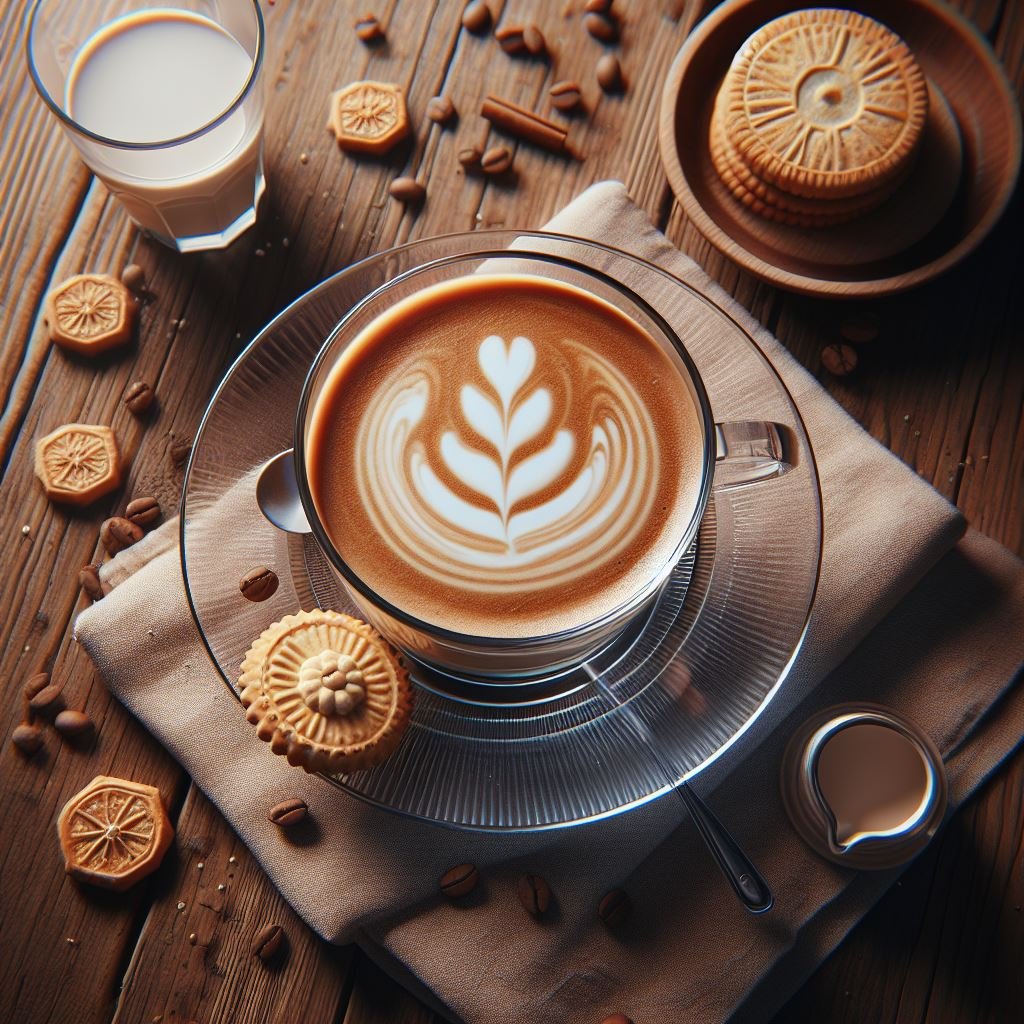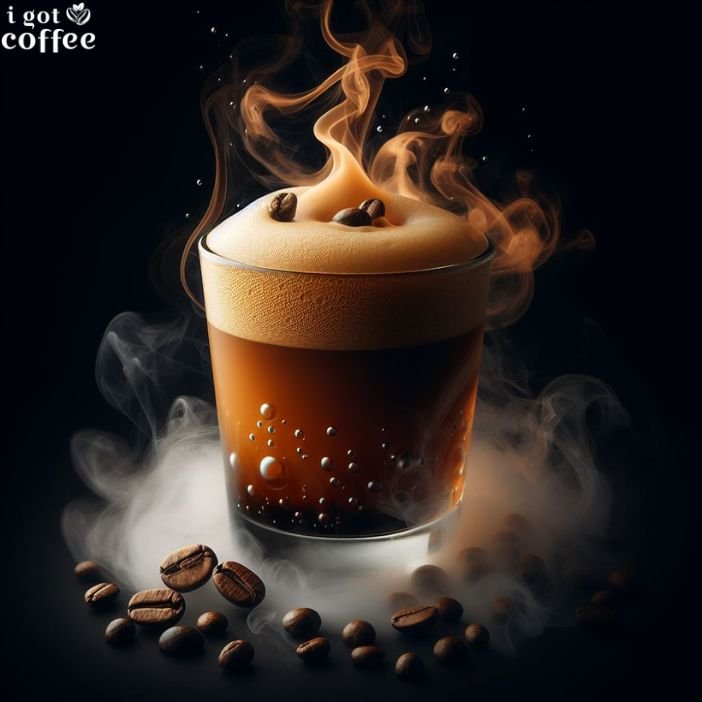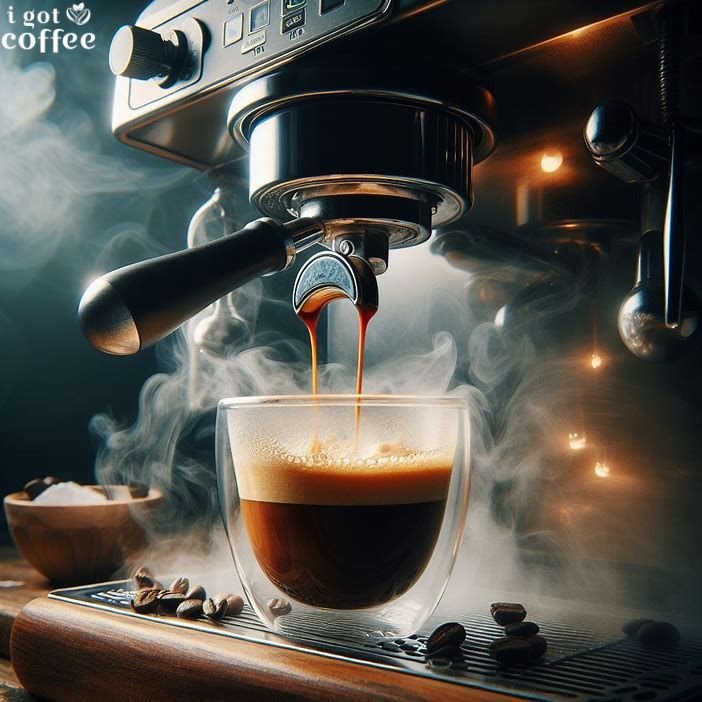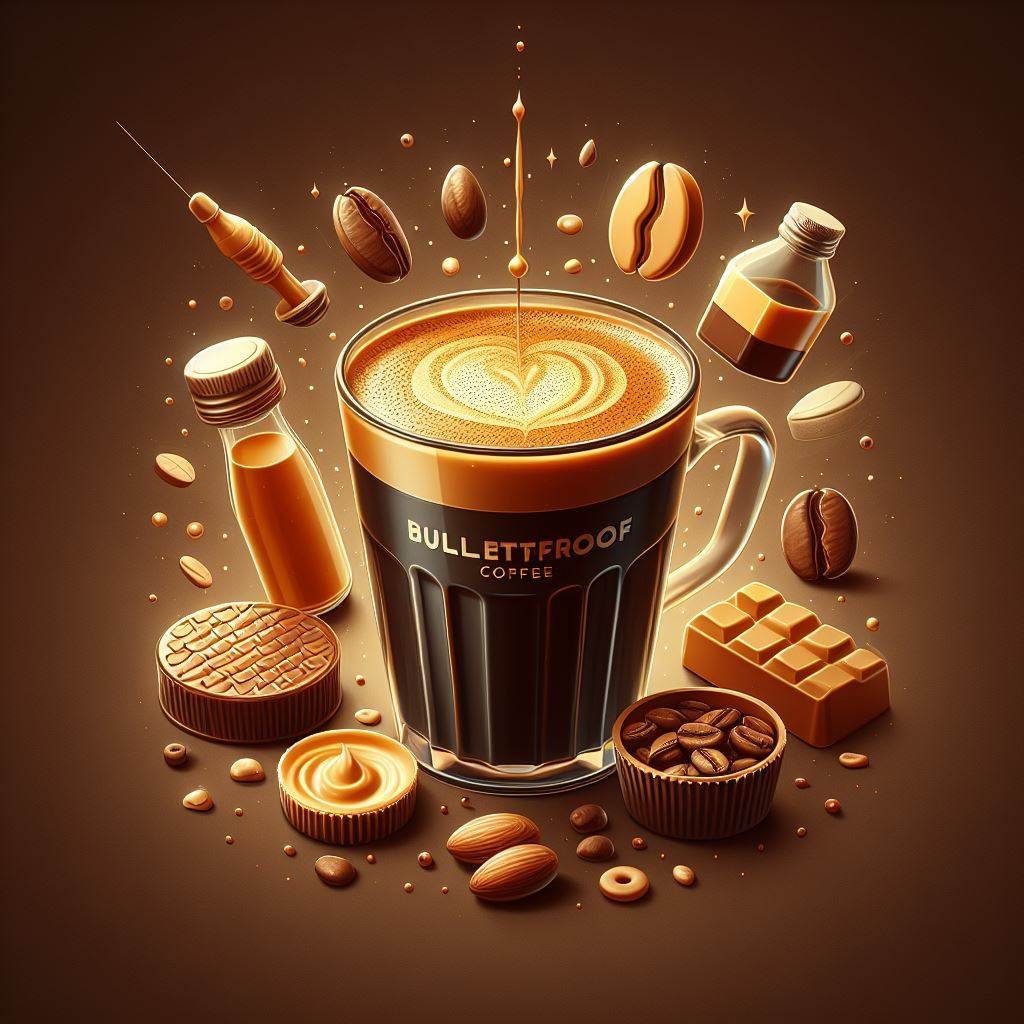What Is Latte Coffee?
Latte coffee is an espresso-based beverage that has become increasingly popular in recent years. It is made with espresso shots, steamed milk, and a layer of foam on top. The espresso is made by forcing hot water through finely ground coffee beans, creating a strong and flavorful shot. The steamed milk is then added to the espresso and topped with a layer of foam. The result is a creamy and delicious coffee drink that is perfect for any time of day. The origin of latte coffee is unclear, but some believe it originated in Italy in the early 1900s. It is believed to be a variation of the traditional Italian cappuccino, which is made with espresso, steamed milk, and a dusting of cocoa powder. Over the years, the recipe for latte coffee has evolved, with various types of milk, syrups, and spices being added to the mix. Latte coffee is unique in that it is made with espresso shots, rather than brewed coffee. This gives it a stronger and more intense flavor than other types of coffee. It also has a creamy texture due to the steamed milk and foam. The combination of espresso and steamed milk also makes it a much healthier option than other coffee drinks, as it contains fewer calories and less sugar.
Latte coffee is unique in that it is made with espresso shots, rather than brewed coffee. This gives it a stronger and more intense flavor than other types of coffee. It also has a creamy texture due to the steamed milk and foam. The combination of espresso and steamed milk also makes it a much healthier option than other coffee drinks, as it contains fewer calories and less sugar.
The Origin and History of Latte Coffee
Latte coffee has a long and storied history, with its origins dating back to the early 1900s in Italy. It is believed to be a variation of the traditional Italian cappuccino, which is made with espresso, steamed milk, and a dusting of cocoa powder. Over the years, the recipe for latte coffee has evolved, with various types of milk, syrups, and spices being added to the mix. In the 1980s, latte coffee began to gain popularity in the United States, with the first espresso bar opening in Seattle in 1982. Since then, the popularity of latte coffee has skyrocketed, with coffee shops and cafes offering a variety of different types of lattes. The trend has also spread around the world, with latte coffee becoming a staple in many countries. The popularity of latte coffee can be attributed to its unique flavor and creamy texture. The espresso shots provide a strong and intense flavor, while the steamed milk and foam give it a creamy and smooth texture. It is also a much healthier option than other coffee drinks, as it contains fewer calories and less sugar.How to Make Latte Coffee
Making latte coffee is a simple process that requires few ingredients and minimal equipment. Here is a step-by-step guide on how to make the perfect latte coffee:- Start by grinding your coffee beans. The grind should be fine, but not too fine, as this will affect the flavor of the espresso.
- Place the ground coffee in the portafilter and tamp it down. This will help create a more even extraction.
- Place the portafilter in the espresso machine and start the extraction process. This should take around 30 seconds
- Once the espresso has been extracted, pour it into a cup.
- Heat the milk in a milk steamer and use a whisk to create a layer of foam on top.
- Pour the steamed milk into the cup with the espresso and top with the foam.
- Enjoy your latte coffee!
Choosing the Right Beans for Your Latte Coffee
When it comes to making the perfect latte coffee, the quality of the coffee beans is key. The type of beans you use will affect the flavor and intensity of the espresso, so it is important to choose the right beans for your latte. Here are some tips for choosing the best coffee beans for your latte coffee:- Choose beans with a medium to dark roast. This will give your espresso a strong and intense flavor.
- Look for beans from a single origin. This will give your espresso a unique flavor and complexity.
- Look for beans with a high-quality flavor profile. This will ensure that your espresso has a rich and balanced flavor.
- Choose beans that are freshly roasted. This will ensure that your espresso has the best flavor and aroma.
Types and Variations of Latte Coffee
Latte coffee is incredibly versatile, with a wide range of types and variations available. Here are some of the most popular types and variations of latte coffee:- Flat White: A flat white is made with espresso and steamed milk, with no foam on top. This gives it a more intense flavor than a traditional latte.
- Mocha Latte: A mocha latte is made with espresso, steamed milk, and chocolate syrup. This gives it a sweet and creamy flavor.
- Caramel Latte: A caramel latte is made with espresso, steamed milk, and caramel syrup. This gives it a sweet and indulgent flavor.
- Chai Latte: A chai latte is made with espresso, steamed milk, and a blend of spices. This gives it a spicy and aromatic flavor.
- Matcha Latte: A matcha latte is made with espresso, steamed milk, and matcha powder. This gives it a unique and earthy flavor.
Caffeine Content in Latte Coffee: What You Need to Know
Latte coffee is a great option for those who are looking for a caffeine boost, as it contains more caffeine than other types of coffee. The amount of caffeine in latte coffee will depend on the type of beans used, the brewing method, and the size of the cup. Generally speaking, a small latte will contain around 75-100mg of caffeine, while a large latte will contain around 150-200mg of caffeine. It is also important to note that the caffeine content of latte coffee can vary depending on the type of beans used. For example, espresso beans tend to contain more caffeine than regular coffee beans. Additionally, light roast beans tend to contain more caffeine than dark roast beans.Is Latte Coffee Good for Your Health? Exploring the Benefits
Latte coffee is a great option for those looking for a healthier alternative to other coffee drinks. It is low in calories and contains fewer sugar and fat than other coffee drinks. Additionally, it is a good source of antioxidants, which can help protect your body from the effects of free radicals. Studies have also shown that latte coffee can help reduce the risk of certain diseases, such as type 2 diabetes and heart disease. Additionally, it can help improve mental alertness and focus, as well as reduce feelings of fatigue.Latte vs. Cappuccino: Understanding the Differences
Coffee lovers around the world know that there are many types of coffee drinks to choose from. Two of the most popular coffee drinks are the latte and the cappuccino. While these two drinks have many similarities, they also have some distinct differences. Understanding the differences between a latte and a cappuccino is essential for coffee lovers who want to make an informed decision when ordering their favorite beverage.- Brewing Methods
- Flavor Characteristics
- Cultural Significance
- Health Benefits
Conclusion
Latte coffee is a unique and delicious beverage that has become increasingly popular in recent years. It is made with espresso shots, steamed milk, and a layer of foam on top, giving it a creamy and smooth texture. It is also a much healthier option than other coffee drinks, as it contains fewer calories and less sugar. Latte coffee has a long and storied history, with its origins dating back to the early 1900s in Italy. Since then, the popularity of latte coffee has skyrocketed, with coffee shops and cafes offering a variety of different types of lattes. Making latte coffee is a simple process that requires few ingredients and minimal equipment. It is also important to choose the right beans for your latte coffee, as this will affect the flavor and intensity of the espresso. Latte coffee is a great option for those looking for a healthier alternative to other coffee drinks. It is low in calories and contains fewer sugar and fat than other coffee drinks. Additionally, it is a good source of antioxidants, which can help protect your body from the effects of free radicals. Latte coffee is a unique and delicious beverage that can be enjoyed any time of day. With its rich flavor and creamy texture, it is no wonder that it has become so popular around the world. Thanks to its unique qualities, it has earned its place in the world of coffee culture.Unraveling the World of Coffee

James Hoffmann, a Coffee Science graduate from the University of London, is a notable figure in the coffee world. With experience as a barista, roaster, and consultant, he brings a wealth of knowledge from bean to cup. James’ writing is passionate and insightful, providing readers with valuable and approachable coffee content.






